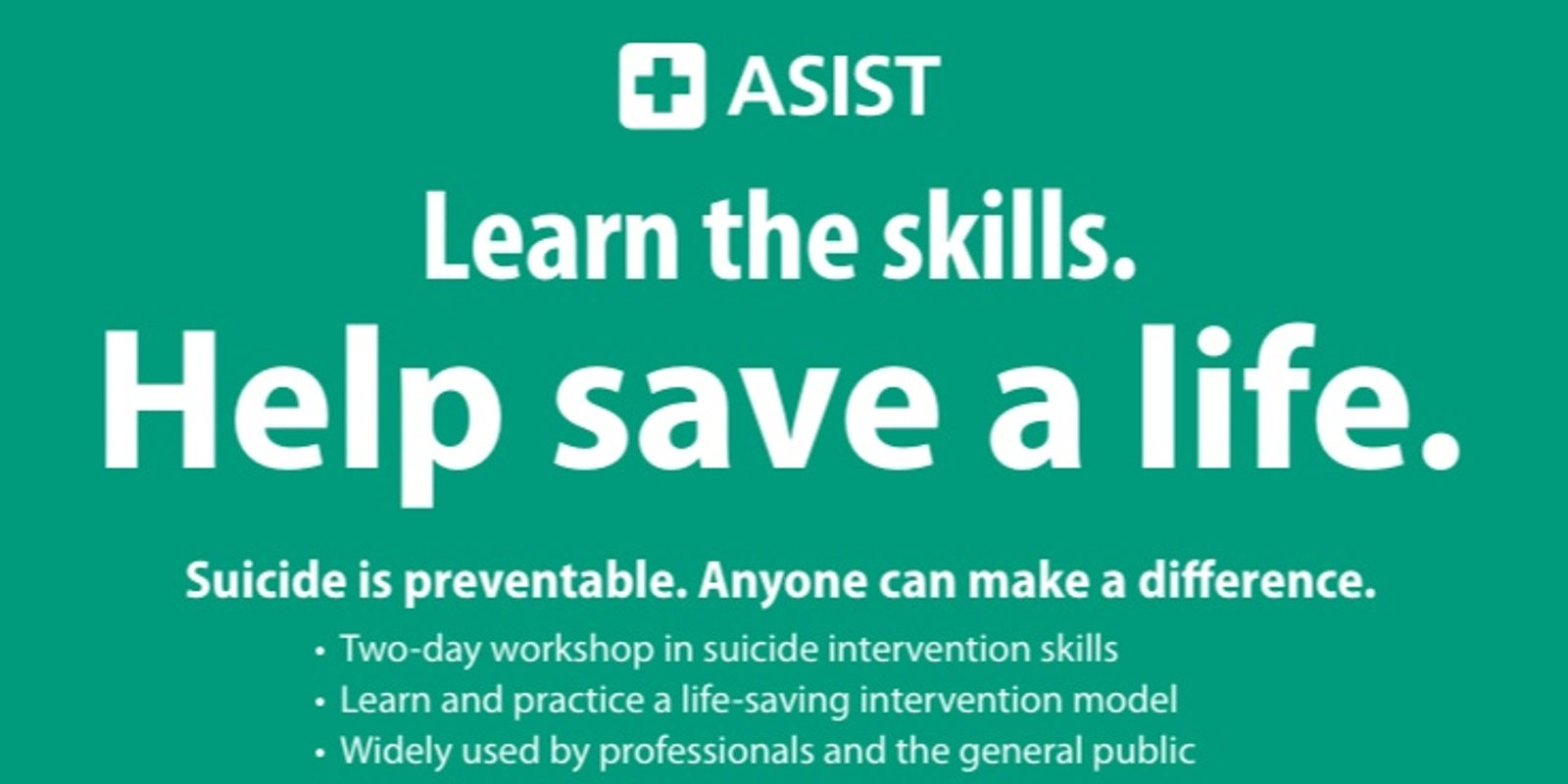Applied Suicide Intervention Skills Training (ASIST) 26-27 September (Fully Booked)
Event description
Please note: this training is now fully booked. Seats are still available for training on Fri-Sat 7-8 September, via this link
Event Details
When: 26-27 Sept, 2024
Time: 8am – 4pm
Where: Halls C and D, Hervey Bay Neighbourhood Centre
Cost: No cost to the participant. Positions are fully funded through The Social Shift by the Department of Social Services Local Services Plans - Community-Led Support Fund. Please only register if you can attend as the training requires a minimum number of people to run.
Includes: Workbooks and resources, morning tea, lunch, afternoon tea
Applied Suicide Intervention Skills Training
Trusted by professionals yet learnable by anyone, LivingWorks Applied Suicide Intervention Skills Training (ASIST) is the only workshop of its kind. In this two-day in-person workshop, participants learn a evidence-based suicide intervention model to intervene and help prevent the immediate risk of suicide. Developed in 1982 and regularly evaluated and updated to reflect best-practice in suicide prevention, ASIST has over 30+ peer-reviewed studies proving its ability to reduce thoughts of suicide for those at risk.
Who can attend an ASIST workshop?
Virtually anyone age 16 or older, regardless of prior experience or training, can become an ASIST-trained helper. During the two-day interactive workshop, participants learn a 6-task suicide first-aid model through powerful audio visual learning aids, group discussions, skills practice and development through trainer-facilitated workgroups. Over 1,000,000 people have taken the workshop worldwide, with over 100,000 Australians completing ASIST in all states and territories.
Many professionals attend ASIST because suicide intervention skills are essential for their work. In many organizations, ASIST is a mandatory component of training. Nurses, physicians, mental health professionals, pharmacists, teachers, counselors, youth workers, police, first responders, correctional staff, school support staff, clergy, and volunteers have all found that ASIST complements their existing training and knowledge.
Other people attend simply because they want to be able to help someone in need, in much the same way they might learn CPR. Because the training is comprehensive and doesn’t rely on prior qualifications, they can have the same meaningful experience as a professional caregiver.
Ultimately, ASIST is founded on the principle that everyone can make a difference in preventing suicide. The more people in the community who have suicide intervention training, the more likely it is they will be able to identify someone at risk and intervene to keep them safe.
What does the training involve?
The ASIST workshop is divided into five sections that follow in a logical progression to gradually build comfort and understanding around suicide and suicide intervention.
Preparing: Sets the tone, norms, and expectations of the learning experience.
Connecting: Sensitizes participants to their own attitudes towards suicide. Creates an understanding of the impact that attitudes can have on the intervention process.
Understanding: Overviews the intervention needs of a person at risk. It focuses on providing participants with the knowledge and skills to recognize risk and develop safeplans to reduce the risk of suicide.
Assisting: Presents a model for effective suicide intervention. Participants develop their skills through observation and supervised simulation experiences in large and small groups.
Networking: Generates information about resources in the local community. Promotes a commitment by participants to transform local resources into helping networks.
Participants in ASIST
- Learn the skills to provide a suicide first-aid intervention
- Work to develop a personalised safety plan for someone with thoughts of suicide to keep “safe-for-now”
- Connect the person with thoughts of suicide to further help
- Acquire skills in a evidence-based intervention model, with the assistance of two
- LivingWorks registered trainer
Who are the Trainers?
Each ASIST workshop is led by at least two registered LivingWorks trainers. In order to become registered, trainers must complete an intensive course called an ASIST Training for Trainers (T4T), present workshops regularly, and submit continuous quality assurance reports. Some ASIST trainers work independently while others belong to agencies and organizations, but all of them share a commitment to excellence in suicide intervention skills training.
There are currently more than 6,000 active ASIST trainers around the world - over 200 throughout Australia. All trainers receive ongoing support from LivingWorks as they work to build suicide-safer communities.
The trainers for this workshop are Andrew Bryant and May Chi.
Andrew is a co-ordinator and leader who is passionate about authentic, competent and character-based leadership. He has over ten years of experience in working across health and community sectors. Andrew focuses on developing the abilities of leaders in regional and rural communities.
May is a psychologist assisting students and professionals to remain engaged in purposeful living. She has an interest in adjustment related stress and growing healthy health professionals locally.
Tickets for good, not greed Humanitix dedicates 100% of profits from booking fees to charity
